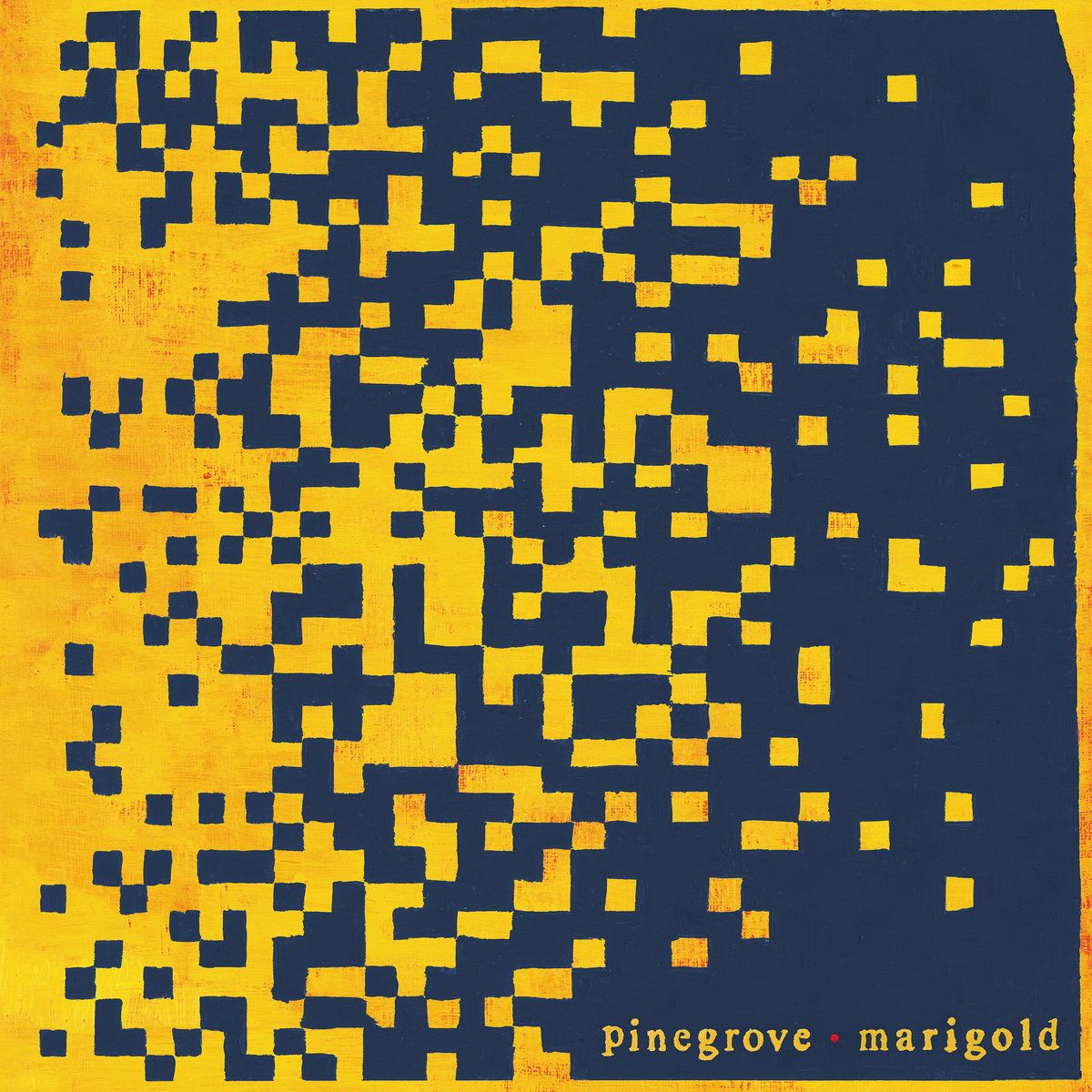Pinegrove’s ‘Marigold’ doesn’t sit quite right
by Seamus McAvoy
2020-02-02

Pinegrove
Marigold
Rough Trade Records · January 17, 2020

Unfortunately, it’s usually easier to just talk about the music.
For those unaware, Pinegrove took a year-long break from touring following sexual coercion allegations against frontman Evan Stephens Hall. An article published in the New Yorker earlier in January does a much better job than I could at explaining the full context surrounding the allegations, and anyone interested in learning more should reference that.
It certainly places the reviewer in an odd position, especially when Pinegrove’s music has traditionally focused so heavily on the brooding narrators of Hall’s creation. On Marigold, the band’s first release featuring songs written after the allegations were made public, this isn’t any different.
Pinegrove has acquired the “emo” tag over the years, which doesn’t particularly seem unfair considering both the lyrics and the music. Hall’s vocals steal the show almost immediately on “Dotted Line,” Marigold’s opener. His voice has tangible emotion behind it, it feels vulnerable, and a slight rasp adds a delicate touch to his unique vocal progressions. Zach Lavine’s strong performance on drums is mixed well. The song is crisp, but still retains authenticity. Less positively, the punchless chorus leaves much to be desired: “Cause I don’t know how/ But I’m thinking it’ll all work out.”
“The Alarmist,” the third track, is rather nice as well, at least musically. Hall paints the scene of a break up in the first verse before slipping into a sparsely accompanied refrain: “Singing be good to me / Be good to me.” The lyrics aren’t impressive, but one can sense the restrained emotion that plays out in Hall’s vocal frills, and it seems one’s enjoyment of the record comes down to how much this sort of vibe works for you. A lonely-looking Hall plays an acoustic version of “The Alarmist” in a video for Rough Trade at the edge of a forest creek, guitar string up and hoodie down.Better lyricism is probably required to justify that sort of melodrama.
Hall’s narrator finds himself a new love interest in “No Drugs,” a song about not doing any drugs. Again, the frontman’s vocals are delicate and compelling, and accompanying guitar picking at the start is a nice compliment, and again the track falters to a lackluster chorus: “Is it so wrong I wanna feel good?/ I wanna feel good.” The bass and drums kick in afterward in an arrangement that’s half-Fall Out Boy, half-Lumineers, and the second verse displays an optimistic narrator: “Let’s build us a new house for to live/ You fortify the outside and I got the interior/ I got the materials we’re gonna need right here.” Optimistic, yes, but it isn’t good.
The album’s highlight comes at the very end on the title track, a six-minute instrumental piece (is it really any surprise the best song is the one with zero words?) that is in no rush to go anywhere. The celestial guitar picking is almost completely outside of the confines of the song, on its own plane, and the composition is rooted by lengthy synthesizer chords that convey more feeling than any lyric on the entire record.
Pinegrove is clearly comprised of talented musicians. Hall possesses a unique voice, he knows how to utilize it, and he’s certainly earned his production-credit of an album that is musically quite tight overall. But the songwriting consistently gets in the way of the emotion the music seems to be attempting to express, creating something that’s bland and flat. It would be understandable if a Pinegrove fan didn’t quite know what to think, for it’s been a tumultuous last few years for Hall. But now he’s back, singing as he does on “Dotted Line” that he’s “thinking it’ll all work out,” and something about it doesn’t sit quite right.
